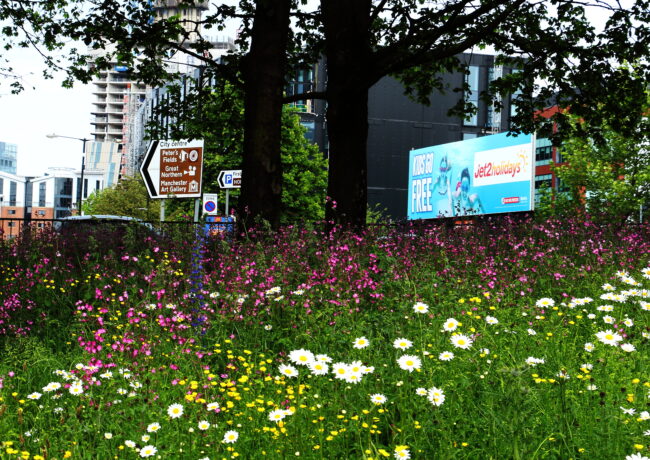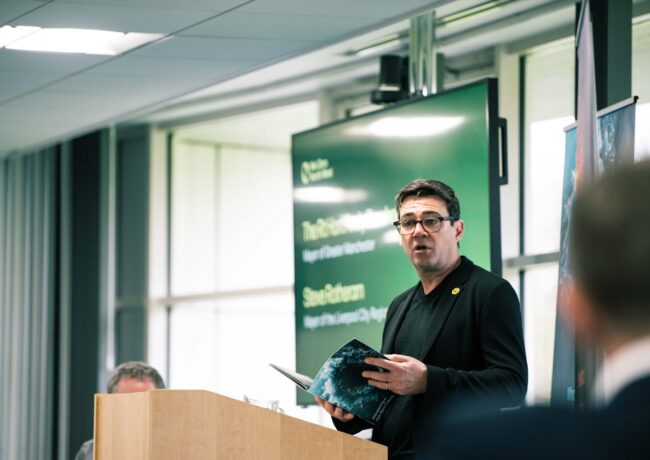Greater Manchester to draw up ‘UK-first’ biodiversity guide
In what is claimed to be the first city-wide study of its type in the UK, the Greater Manchester Combined Authority has commissioned consultants WSP and Footprint Ecology to draw up a study into improving biodiversity through development.
The study will focus on Biodiversity Net Gain – development that leaves biodiversity in a better state than before. According to WSP, the understanding of Biodiversity Net Gain has to date lagged behind other strategies including energy-from-waste and carbon capture.
WSP and Footprint Ecology are drafting the guidance, which will be adopted by GMCA following a review. The study will focus on better risk management from quantifying losses and gains in biodiversity, and demonstrating contributions to local communities through biodiversity, including health and well-being benefits.
It is hoped the research could also help developers improve site viability.
Technical director Tom Butterworth from WSP and Rachel Hoskin, director at Footprint Ecology, will work on the study along with a Greater Manchester stakeholder task group, and the research is likely to be completed in early 2019.
It is also intended the guidance will feed into the Greater Manchester Spatial Framework and the GMCA’s Natural Capital Investment Strategy.
Butterworth said: “Year-on-year the UK is losing almost 1% of its biodiversity in terms of abundance and distribution of wildlife, so since the mid-1970s we have already lost around a third of our wildlife. Unless we do something we are going to get to a tipping point, in my lifetime, where wildlife will not be able to replenish itself; after that we could be left with rats, pigeons and cockroaches as our only natural neighbours.”
“If adopted, Biodiversity Net Gain can halt and reverse that decline over time. WSP is currently involved in a number of pilots across Manchester where we are working with developers to look at the possibility for gains through development if BNG was incorporated from the outset.
“We are looking at sites retrospectively to see what impact BNG could have had and, if certain elements had been done differently, what gains could be made financially, on site viability as well as ecologically.”




